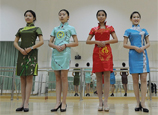
Noting that there are elements of both cooperation and competition in the U.S.-China ties, Donilon said the U.S. policy has been to seek to balance these two elements in a way that increases both the quantity and quality of its cooperation with China as well as its ability to compete.
"At the same time, we seek to manage disagreements and competition in a healthy - and not disruptive - manner," he added.
Donilon said through high-level consultations with Beijing, such as the Strategic and Economic Dialogue, the U.S. approach toward China has yielded important results that advance U.S. national security interests.
The U.S. has elicited "significant and sustained Chinese cooperation regarding Iran's and North Korea's (DPRK) nuclear and missile programs." On the economic front, the U.S. coordinated with China to jump start the global economic recovery in 2009 and to build the G20 into the leading global economic institution, while the U.S.-China military relations have been gaining momentum, he said.
While urging Beijing to assume responsibilities commensurate with its growing global impact and its national capabilities, Donilon said one of U.S. policy goals is "to work with China to strengthen institutions ... and enhance the ability of these institutions to address regional and global challenges."


















 Hunan college girl designs cheongsam inspired by women's secret language
Hunan college girl designs cheongsam inspired by women's secret language


![]()
